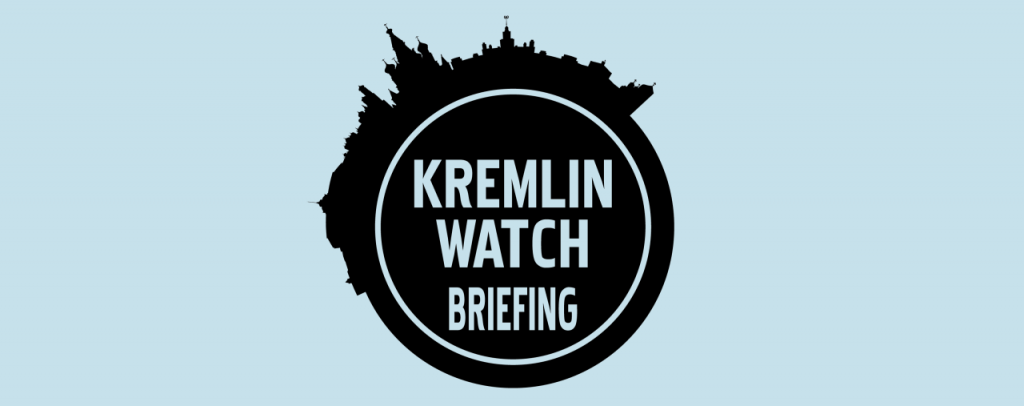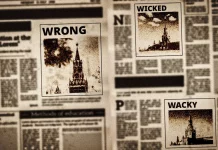
Topics of the Week
Russia accused of cyber-attacks on the Norwegian’s parliament and the Japan Olympics.
Facebook greatest source of Covid-19 disinformation, according to journalists.
Kremlin’s Current Narrative: Liberal democracy policies have become an internal threat to Europe.
Good Old Soviet Joke
What is seven kilometres long and eats potatoes?
A Polish meat queue.
Policy & Research News
Norway accused Russia of hitting parliament by the cyber-attack
Norwegian’s parliament disruption launched in August was assessed by the security and intelligence services and concluded that Russia was behind the cyber-attack. Malicious activities were aimed to disrupt the mailing system of Norwegian state officials, mainly lawmakers, and employees. Some of the data was downloaded. Foreign Minister called it a serious and unacceptable incident that was aimed to interfere with the “most important democratic institution.”
In response, Russia’s embassy called it a ‘serious and deliberate provocation”, which affected bilateral relationships. They dismissed any accusations and stated that those are not backed up by evidence that would certify the origin of the cyberattack.
Previously Russia has been already blamed for conducting numerous cyber-attacks against foreign democratic institutions, such as Bundestag and Czech Republic’s MFA. This summer the first-ever sanctions were also imposed by the EU against Russia and China-led cyber attack in the summer.
Russia aimed to target Japan Olympics with a cyber attack
The UK National Cyber Security Center in their joint operation with the US intelligence corpus announced that Japan’s Olympics and Paralympic Games were supposed to be a subject of the cyber disruption as part of another malign Kremlin-driven activity until the Games were cancelled due to the COVID-19 pandemic. British officials also revealed that Tokyo Games’ organisers were targeted by Russia’s ‘cyber-reconnaissance’ operations.
Japan’s officials announced that they will enhance cybersecurity capabilities around future Games and condemn Russian hostile activities. In its turn, Russia denied any allegations over Kremlin’s attempt to interfere with the Olympics.
The intention to conduct hacks is likely to be an element of retaliation, since earlier Russia was banned for four years from participation in all major sporting events by the World Anti-Doping Agency, including Tokyo’s Games and Qatar-hosted 2022 World Cup.
This week the USA also charged six Russian military officers for carrying out the global cyber malign campaign between 2015 and till nowadays, such as the 2017 French presidential elections, the 2018 Winter Olympics in South Korea, and destructive attacks on Ukraine’s power grid.
Western security agencies privately blame FSB for Navalny poisoning
The cohort of the Western intelligence officers concluded that the leader of Russian opposition was poisoned by FSB, the agency of domestic intelligence. The security intelligence agencies of France, Germany, and the United Kingdom, among other states, are confident that poisoning was ordered by the Kremlin. This claim goes in line with the previously imposed sanctions by the EU against the institution involved in the Novichok development and also six senior Russian individuals, including Alexander Bortnikov, who is the head of the FSB. Nonetheless, EU leaders remain to be reluctant to openly accuse FSB of Vladimir Putin over Navalny’s poisoning.
US Developments
Facebook greatest source of Covid-19 disinformation, journalists say
An international survey conducted by the International Center for Journalists (ICFJ) and the Tow Center for Digital Journalism at Columbia University has named Facebook as the worst offender in spreading Covid-19 disinformation ahead of elected officials. 66% of journalists surveyed stated that Facebook was the main source of “prolific disinformation.” 82% of respondents reported the misinformation to Facebook, WhatsApp, and Instagram, and almost half said they were unhappy with the response. Twitter, YouTube and Google Search also frequently spread disinformation about Covid-19, according to the survey.
College students struggle to spot misinformation online as 2020 election approaches
Researchers from the Stanford History Education Group have found that college students are prone to be deceived online despite having grown up with the internet. The study found that most sophomores, juniors and seniors were “easily fooled by misinformation, even when they were given the time and resources to fact-check the material.” The Stanford researchers advocate for “incorporating lessons on source validation and basic fact-checking skills into regular coursework.”
Kremlin’s Current Narrative
Liberal democracy policies have become an internal threat for Europe
The recent murder of a teacher in a suburb city of France and the continuing reaction from both communities and the law enforcement have provided some of the Russian media with a new rationale to comment on and criticize the current European cultural policies.
“A terrorist killed a teacher, and Europe is killing itself” – a recent title from the RIA News in which the author explores how Europe is facing the “sacramentally Russian questions: who to blame and what to do about it?”
Firstly, the author argues that it is all too common for a refugee (a “future murderer” in this case) to easily acquire the European residence. On account of his Chechen origin, according to RBC.ru, the Chechen president Ramzan Kadyrov stated that even though his country may once again be blamed for a religiously-motivated crime in Europe, he was certain that the convicted was aware of his actions and the fact that the French government “cannot hear the believers,” who should not be provoked or disrespected.
Secondly, the teacher showing to the class one of the caricatures of Prophet Muhammad by Charlie Hebdo was a “part of the newest French program that concerns mainly education.” At the same time, it is “unbelievable” that the government considers such methods “effective in the fight for secularization, integration of minorities and erosion of the ghettos.” This claim is ungrounded and was never mentioned in the albeit disputed, but recently proposed by the president Macron course to build “the French Islam.”
Finally, follows the discussion of the flawed European concept of individual freedom, according to which the benefit for one inevitably entails the cost for another. As a result, the European structures do not accept any extreme points of view, regardless of ideology.
Nevertheless, to fight these “unacceptable” views, the governments resolve to radical means. “Seems that the West has just forgotten” that it is possible to prevent radicalism in schools in the same way as it is possible “to protect individual’s privacy and sexual orientation while blocking any attempts to penetrate non-traditional sexual practices into public life, be it gay pride parades or the promotion of homosexuality among minors” (same source).
What is more, an earlier article from the end of September has praised the “brave views” of the Prime Minister of Hungary Victor Orban in regard to liberal democracies that attempt to undermine the critical values of “nation, family and religion”, to the point where they create “chaos and wreckage.”
In general, the convention that democracy can only be liberal is inflicted by the Western media, while truly independent European states (such as Hungary) are rightfully protecting their national identities from the “moral imperialism” and “liberalist dictatorship.”
Kremlin Watch is a strategic program of the European Values Center for Security Policy, which aims to expose and confront instruments of Russian influence and disinformation operations focused against the liberal-democratic system.





